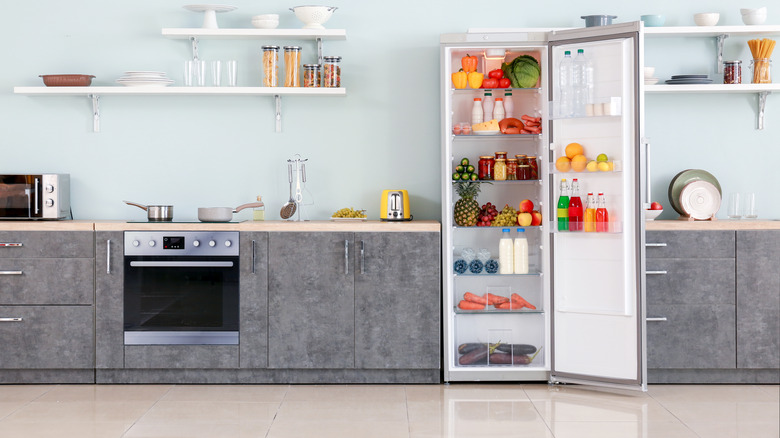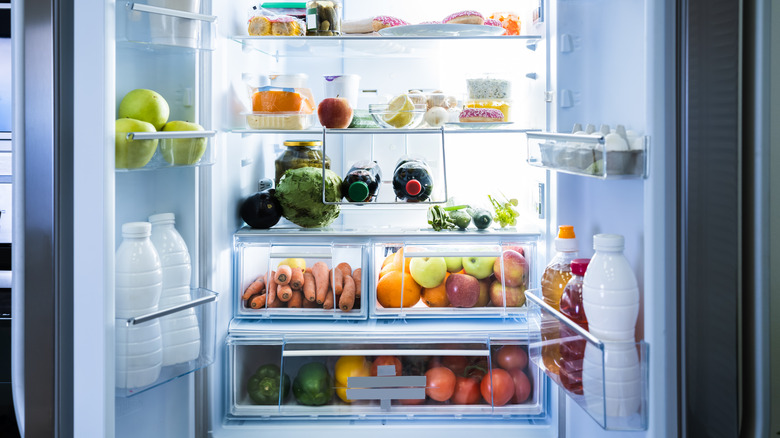Why Is My Refrigerator Running All The Time?
If you've gotten used to the constant humming sound coming from your kitchen thanks to a refrigerator that's running all the time, that's understandable. It's basically white noise, after all, and easy to overlook if you want really want.
But it definitely isn't a noise you should ignore. Your refrigerator takes a lot of energy to operate since it's always on, costing you anywhere from $35 a year for an energy-efficient fridge to $200 a year for an older model, according to Direct Energy. And if it's not running efficiently, causing the motor to start and stop more often than it should, your electric bill can be even higher.
If you find that your refrigerator is running all the time, there are several causes, and it could be things you're doing yourself or factors that are mostly beyond your control. Here are the most common reasons that refrigerators run constantly.
Things you're doing to make your fridge run
When a refrigerator is running — an active whirring sound louder than the typical hum — it's the motor trying to lower the temperature inside the appliance to achieve the temperature it's set for. So, your fridge might continually run if you have it at the coldest setting possible, according to SF Gate, which isn't recommended.
Factors that can disturb that temperature setting and cause the fridge to run include opening and closing the door too often or not closing it all the way, which results in room-temperature air entering the fridge. If you place hot or warm foods inside the fridge, like leftovers or a freshly baked cake you want to cool, this can also raise the temperature and prompt the motor to start, too.
Also, if you allow the compressor and condenser coils on the back of the fridge cool get too dusty, the machine will start straining to do its job and the motor will run constantly. This is an easy fix, however, if you vacuum behind your fridge periodically to remove dust.
Factors beyond your control
No matter how well you maintain your fridge, there are some factors that will cause it to run that are pretty much beyond your control. For example, hot weather can prompt the motor to run more than normal, per SF Gate, so it's not entirely unusual for your fridge to be chugging along in the summertime.
Also, power outages can turn off your fridge and allow the temperature inside to increase. Then, when the power comes back on, the motor is working overtime to cool things down and reach the desired temperature setting.
Finally, another factor is the gasket, the seal along the outer edge of the door that keeps the fridge tightly shut through magnetism or suction. This generally breaks down over time, drying out, cracking, or breaking. When this happens, the fridge isn't sealed as well as it should be, letting in warm air and prompting the motor to run to compensate.


